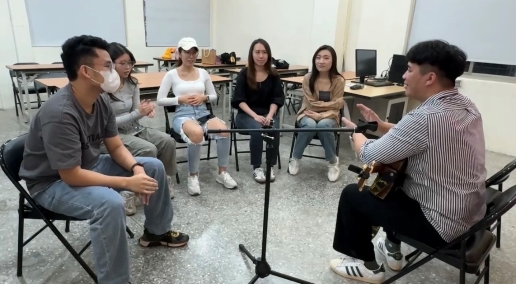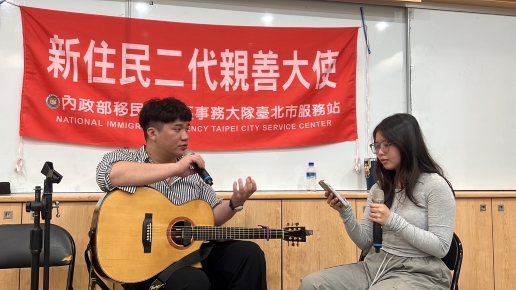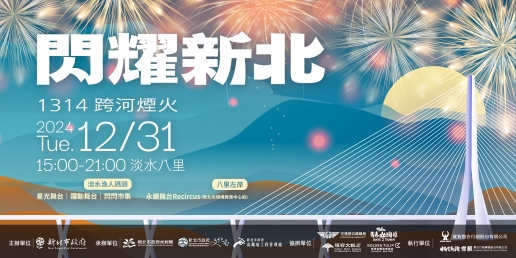The National Immigration Agency's Taipei City Service Center, under the Northern Region Administration, recently held an empowerment course for "Second-Generation Goodwill Ambassadors." The course invited Wu Cheng-Yen, lead vocalist of an Amis band from Hualien, to serve as the instructor. During the session, Wu guided the second-generation participants through simple rhythm games and vocal training, focusing on breathing techniques, control of vocal muscles, and proper enunciation. Participants practiced singing two ballads, with Wu providing individualized feedback on pitch, pronunciation, and intonation issues. The interactive environment enabled participants to enhance their singing skills. The Instructor Leads Participants in Rhythm Games to Enhance Their Familiarity with Rhythm (Photo: Taken from NIA Website)
The Instructor Leads Participants in Rhythm Games to Enhance Their Familiarity with Rhythm (Photo: Taken from NIA Website)
Wu Cheng-Yen, who has years of experience performing and has won multiple singing competition awards, emphasized that singing is a unique gift everyone possesses. He highlighted that mastering rhythm, vocalization, and pronunciation are key to performing a song well. Wu also underscored that singing is not just a hobby but can also serve as a source of emotional strength, offering mental support through the resonance of melodies and lyrics. He encouraged participants to practice diligently, asserting that "anyone can become their own king or queen of singing."
One of the participants, second-generation goodwill ambassador Tseng Hsin-Yi, whose mother hails from Vietnam, is currently a second-year university student. Actively involved in public affairs from a young age, she frequently participates in activities organized by new immigrant associations to understand the needs of immigrant communities better. Receiving professional singing training for the first time, Tseng shared that she enjoys singing with friends at KTV and that this course helped her learn breathing and enunciation techniques. She expressed her aspiration to showcase the beauty of her mother tongue through music and promote Taiwan's multiculturalism.







